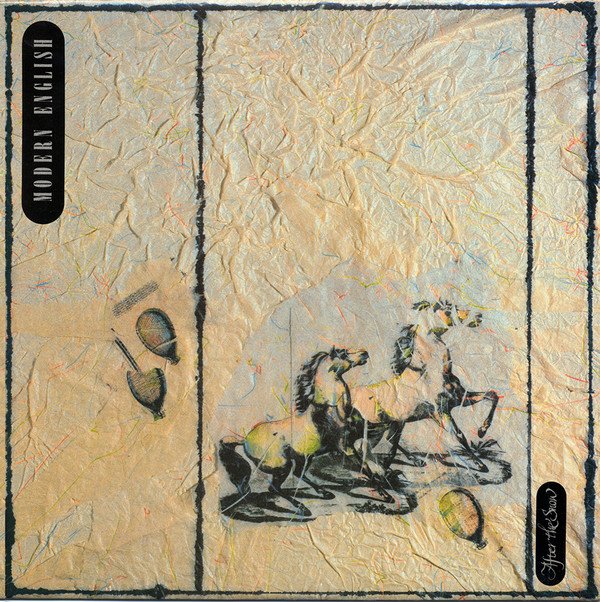
After the Snow (original cover)[/caption]Released in May 1982 on 4AD Records, After the Snow marked a pivotal evolution for Modern English, the Colchester-based post-punk outfit. Following their abrasive debut Mesh & Lace (1981), this sophomore effort softened the edges, embracing melodic new wave sensibilities while retaining a shadowy, introspective core.
Produced by Hugh Jones, the album’s eight tracks clock in at just over 30 minutes, blending driving rhythms, atmospheric keyboards, and Robbie Grey‘s haunting vocals into a cohesive, if occasionally eccentric, soundscape.
The album opens with “Someone’s Calling,” a brooding call-to-arms with pulsating bass and urgent percussion that sets a tone of existential unease. Tracks like “Life in the Gladhouse” inject funky tom-tom beats and serpentine bass lines, evoking a paranoid dancefloor vibe reminiscent of early Talking Heads. “Face of Wood” delves into darker territories with its ominous intro and melodic undercurrents, while “Dawn Chorus” offers a pretty yet melancholic interlude, showcasing Stephen Walker‘s prominent keyboards for a grand, romantic sweep.
Of course, the crown jewel is “I Melt with You,” a perfect pop anthem that balances giddy sentiment with heartfelt passion, its acoustic-electric rush and uplifting chorus making it an enduring ’80s staple. The title track “After the Snow” paints a strange, wintry landscape with driving energy, and “Carry Me Down” emerges as the album’s prettiest moment, ethereal and emotive. Closer “Tables Turning” ramps up the tempo with wiry, pulsating urgency, waving goodbye on a frenetic high note.
Strengths abound: impeccable production creates a suite-like flow, with no filler tracks, and the shift toward accessibility highlights the band’s songwriting prowess without sacrificing depth.
This adventurousness is its charm, making After the Snow more than just “I Melt with You.” More than four decades on, reissues (like the 2019 remaster with bonus remixes and B-sides such as “The Prize”) affirm its legacy.
In a sea of ’80s synth-pop, Modern English delivered something moodier and more substantive. Essential for new wave aficionados, it’s an album that melts hearts while chilling spines.
